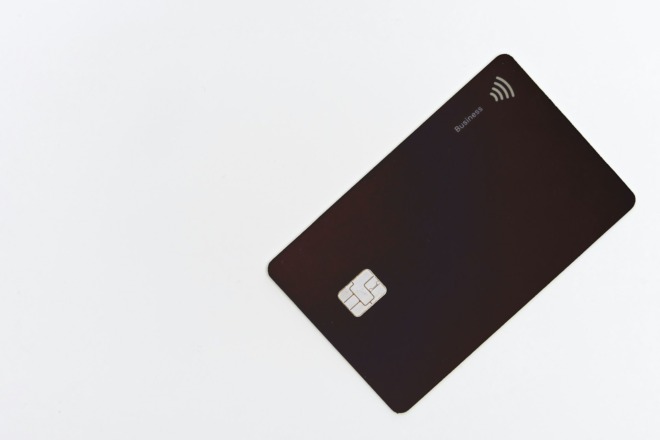Being a graphic designer will require you to juggle multiple responsibilities and tasks, which can get overwhelming if left unchecked. That’s why it’s crucial to have time management skills to help you accomplish projects, increase your productivity and please clients.
The Importance of Time Management
Time management will set you apart from other designers and creatives in the industry. Clients like to work with professionals who can deliver high-quality work on time. While it can be challenging initially, it’s doable with constant practice. Building good work habits will ensure you have more time on your hands. Here are some other benefits of time management:
- Improves Performance: Some people complain about not having enough hours to finish their tasks, leading to poor performance and low morale. Proper time management will help you create better work for essential projects.
- Increases Productivity: Do you feel you have too much on your plate? Manage your time wisely and you’ll find that you can do much more with the same time in the day.
- Reduces Stress: Time management will help you knock off tasks on your checklist instead of making you feel like you’re losing a game of catch-up. Having better control over your to-do list will help reduce stress and motivate you as you work.
- Builds Good Relationships With Clients: A dependable graphic designer who delivers projects on time is a good business partner. Excellent time management skills will let your clients know they have the right person for the job.
Time Management Skills You Should Work On
Contrary to what many think, highly productive people aren’t born with impeccable time
management skills. Building these skills takes time and effort, but they are worth it once you master them.
Planning
If you fail to plan, you plan to fail. Various projects can be overwhelming, even for seasoned designers and creatives. A plan will help you get on top of your deliverables and commitments. Show your clients how committed and equipped you are and you’ll soon find more projects coming your way.
Organization
Messy workstations and assets can be a huge time-waster. Keep all of your files organized and you’re likelier to have your focus on things that matter. Being organized is an underrated time management skill in any profession. Hard skills may get you through the door but soft skills ensure you stay exactly where you want to be.
Prioritization
One of the pitfalls of many creatives is their inability to prioritize. While everyone has a lot on their plates most of the time, those who know how to prioritize tasks ensure they have enough time to complete them efficiently and effectively. Learn how to categorize tasks according to their urgency and importance.
Problem-Solving
Like in many professions, problem-solving is a crucial skill in graphic design. Overall, clients will love to work with you if you know how to solve long-standing problems. It also helps you keep tabs on your projects to prevent burnout and fatigue from setting in. Knowing how to problem-solve will save you precious time and energy you can use in other important tasks.
Recording
Knowing how to record the details of your projects and other undertakings is crucial to building time management skills. Designers are often so loaded with obligations that they fail to take note of essential information like client preferences and specs. Keeping records will help you get all things right the first time, so you won’t have to cram during revisions and client meetings.
Goal-Setting
Make it a habit to list down all of your project goals whenever you start a new project. Setting goals will give you targets to aim for and help you focus. You can manage your time better if you constantly see yourself progressing through the goals you set at the beginning of your project. Being goal-oriented will also help you improve work quality as you aim for excellent results.
Communication
Asking questions at the beginning of projects will save you much time and effort in your design career. Keeping communication lines open is also essential to working with a wide range of clients and team members — a common occurrence in the design and creative industry. Ask your clients what they need or want to see before diving deep into a project. If you ask the right questions, you can build a better image of your project before working on it.
Strategies for Building Time Management Skills
Assess Current Work Habits
One of the best ways to start honing your time management skills is to assess yourself and your working habits. Checking what works and what doesn’t in your system will give you a better understanding of why you’re running into challenges in your daily work.
Try tracking your work progress the next time you work. Log in your start and finish times, including the little breaks between work sessions. See what takes up most of your time and try to tweak and improve your system.
You may be doing some things between work sessions, bogging you down. Time-wasting activities like constantly checking your email and notifications or sneaking in a few minutes of social media can quickly pile up. They can take you away from your work and become bad habits later.
Create Time Blocks
Setting time blocks is an excellent way to create realistic estimates for various projects. It also helps you improve your time management by focusing on specific tasks within the allotted time block. Dividing your day into time blocks can take some getting used to, but it will give you a better overview of your work days with continuous practice.
One of the most significant benefits of creating time blocks is that your mind already knows how your work day will transpire. Creating time blocks will help you build a habit of sticking to the tasks at hand and avoid procrastination.
Prioritize Doing Deep Work
Prioritizing deep work instead of superficial tasks will help you create high-quality work. It will also let you improve your time management as you go into the flow state — a phase where you breeze through essential tasks by staying focused.
Staying in your flow state eliminates unnecessary residual information that can prevent you from creating your best work. Deep work is valuable for any graphic designer and creative as it does most of the heavy lifting required to finish complex assignments and projects.
Remove Distractions
Distractions are the biggest time-wasters aside from procrastination. If you want to improve your time management, removing distractions should be one of your first considerations. While every person yearns for social interaction, you must find time for it as you do with work. Reserve checking your phone or email for the end of your work session.
Set Realistic Goals
Sometimes, working hard can unintentionally affect productivity, especially if you set unrealistic goals. Tackling complex projects is challenging enough, but being overly ambitious can lead to burnout and missed targets. Set realistic goals in your tasks so you’ll feel better about achieving them. Missing goals can discourage you from improving, even if they’re too ambitious.
Take Breaks Now and Then
If you’re setting time blocks in your day to do deep work, you should also schedule breaks to give yourself time to decompress and recover. The Pomodoro Technique requires you to take a break between work sessions to keep you focused and prevent sensory overload. Being kind to yourself is an essential part of building time management skills.
Time Management is an Essential Skill, Learn It
Practicing good time management will help raise your value as a designer. Put in the work and build life-long habits to continue growing. Make the best use of your time and pour it into something that will help you grow.


